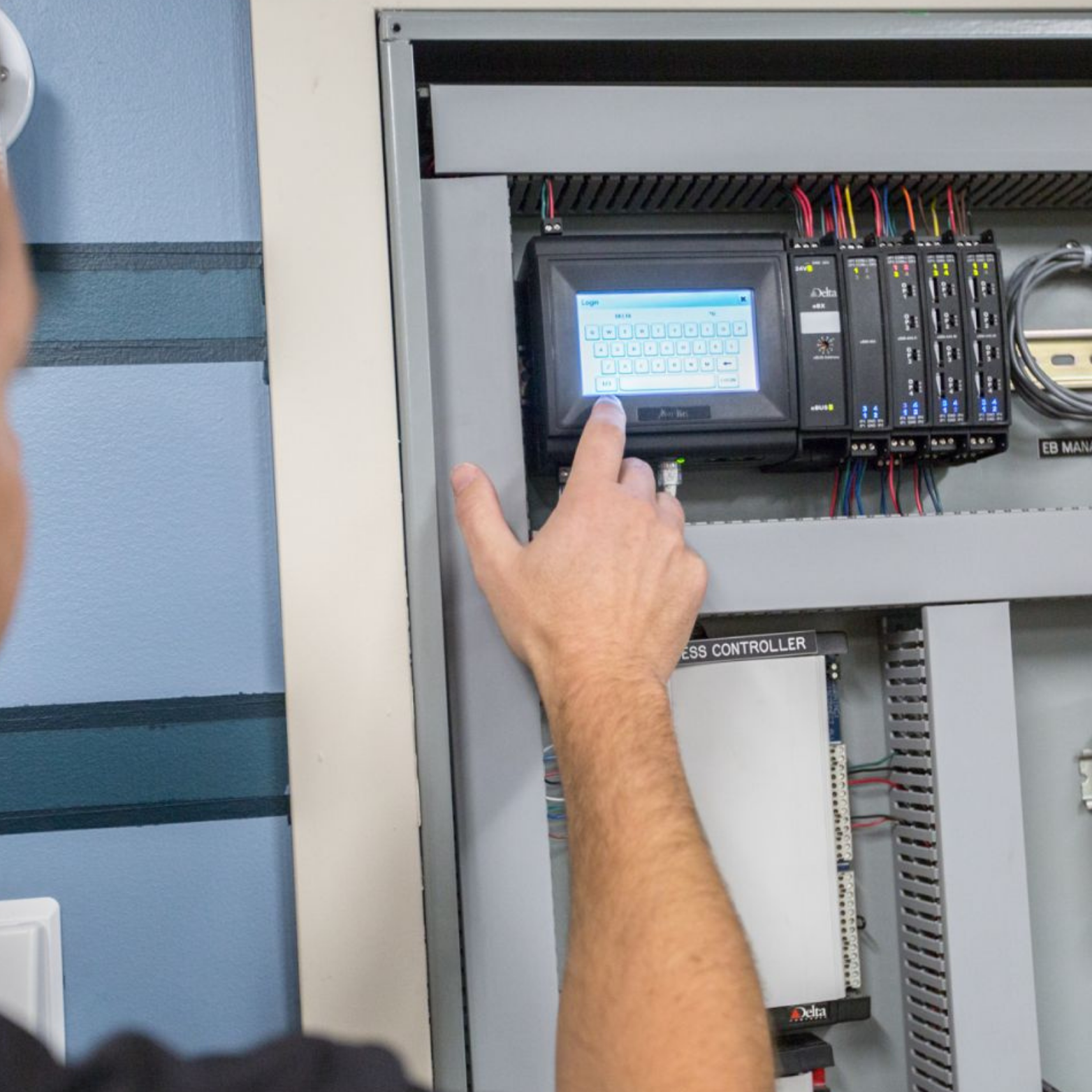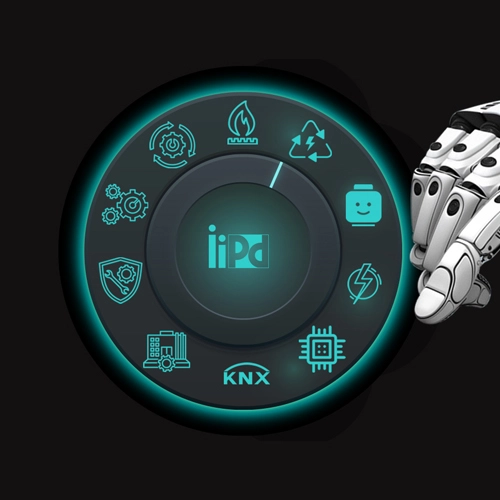Facility Management is a multifaceted discipline that demands adept oversight and strategic management of a broad spectrum of services and processes. Its scope extends across diverse elements, including buildings, infrastructure, and a myriad of assets.
The Certified Facility Manager (CFM) certification, designed with precision, serves as a crucial validation of individuals' proficiency, skills, and knowledge in the dynamic field of Facility Management. This preparatory course in Dubai is meticulously crafted to equip aspiring professionals with the necessary expertise to ensure the seamless and efficient functioning of facilities, meeting the rigorous standards set by the International Facility Management Association (IFMA).

Certified Facility Manager (CFM):
The CFM certification is meticulously tailored for adept facility managers and professionals who shoulder the responsibility for the strategic and day-to-day management of facilities. This certification holds pertinence for those overseeing and steering the daily activities, maintenance routines, and service provision within these facilities. CFMs typically hold influential leadership roles and are deeply immersed in decision-making processes concerning facility planning, budget allocation, sustainability initiatives, security protocols, and much more.
In this course, participants will dive into the intricacies of facility management, exploring an extensive range of supervisory techniques, management strategies, and monitoring protocols. This program, designed for industry experts, delves into diverse facets of the field, equipping participants with comprehensive knowledge and skills.
Course Objectives
By the end of this course, participants will:
- Gain a comprehensive understanding of essential terminology, guidelines, and practices for effectively overseeing tangible assets in the field of facilities management.
- Stay updated on sustainability principles and evaluation methods, encompassing waste, water, and energy management, while ensuring compliance with legal requirements.
- Identify, assess, and proficiently manage a spectrum of factors impacting facility management, including human resources, political dynamics, social influences, economic variables, and industry-specific considerations. Strategically align facility management practices with organizational goals.
- Apply a range of tools and techniques for planning, coordinating, executing, assessing, and concluding facility management projects.
- Grasp the financial and business aspects crucial to facilities management, including capital budgeting, financial analysis and reporting, and procurement contracting.
- Implement various metrics, processes, assessment tools, and techniques within the realms of quality management, risk assessment, information management, and technology integration.
Course Outline
This course acknowledges the multifaceted nature of facilities management. It provides practical insights into eleven key competencies necessary to pass the IFMA's CFM exam and establish a successful career as a facilities manager. Additionally, this course extensively examines the dynamic interplay between tangible assets (facilities) and intangible factors (human resources) within the realm of facilities management.
Occupancy and Human Factors
- Workplace environment
- Occupant services
- Occupant health, safety, and security
Operations and Maintenance
- Buildings, building systems, infrastructure, and grounds
- Furniture, fixtures, and equipment
- Physical safety and security
- Operations and maintenance processes
- Work management support systems
- Renewals and renovations
- Eliminating team impediments
- Managing virtual team
Sustainability
- Energy management
- Water management
- Materials and consumables management
- Waste Management
- Workplace and site management
Facility Information Management and Technology Management
- Data collection and information management
- Information protection and cyber-security
- Technology needs assessment and implementation
- Maintenance and upgrade of technology systems
Risk Management
- Risk management planning
- Emergency preparedness, response and recovery
- Facility resilience and business continuity
Communication
- Planning
- Delivery
- Evaluation
Performance and Quality
- Quality Management
- Performance Management
Leadership and Strategy
- Strategic planning and alignment with the demand organization
- Policies, procedures and compliance
- Individual and team management
- Leadership
- Relationship and conflict management
- Change management
- Corporate social responsibility
- Political, social, economic, and industry factors affecting facility management
Finance and Business
- Operational and capital budgeting
- Evidence-based decision-making process (e.g. business case)
- Procurement (e.g. purchasing, sourcing of goods and services)
- Contracting
- Financial analysis and reporting
Real Estate
- Real estate strategies
- Real estate assessment, acquisition, and disposal
- Real estate asset management
- Space management
- Major projects and new construction
Project Management
- Planning and design
- Execution and delivery
- Evaluation

Who Can Attend CFM Exam Preparation Training?
CFM Exam Preparation Training is suitable for the following:
- Facility Managers
- Property Managers
- Building Managers
- Maintenance Managers
- EHS Managers
- Space Planners/Managers
- Sustainability Managers
- Project Managers with a focus on Facility Management
- Operations Managers in Facility Management
- Admin and Facility Executives
- Anyone aspiring to managerial positions in facility management
Prerequisites for the CFM Certification Exam
Candidates typically need a minimum of three years of experience involving facility management tasks and responsibilities. The specific work experience requirement varies based on education:
- For bachelor's degree holders: Two years of facility management experience.
- For diploma or associate's degree holders: Four years of facility management experience.
- For those with no formal education beyond high school: Five years of facility management experience.
Exam Format
The CFM exam is computer-based and consists of 180 multiple-choice questions.
Exam Content Areas
The CFM exam covers 11 core competencies related to facility management, with a focus on Occupancy and Human Factors:
- Occupancy and Human Factors
- Operations and Maintenance
- Finance and Business
- Leadership and Strategy
- Communication
- Performance & Quality
- Facility Information Management & Technology Management
- Sustainability
- Real Estate
- Project Management
- Risk Management
- Exam Duration
The exam lasts for four hours.
Passing Score
To pass the CFM exam, candidates typically need to achieve a minimum score, which IFMA determines.
Showcase Your Proficiency and Expertise in Facility Management
The CFM exam is a testament to its comprehensive coverage of the 11 core competencies that are essential in the field of facility management:
Communication: Effective communication is crucial for successful facility management, encompassing the ability to convey information clearly, facilitate collaboration, and ensure that all stakeholders are informed.
Risk Management: Facility managers must adeptly identify, assess, and mitigate risks associated with their operations, ensuring the safety and security of the facility and its occupants.
Sustainability: Sustainability practices are at the forefront of modern facility management, involving strategies for resource conservation, environmental responsibility, and long-term viability.
Finance & Business: Facility managers need a solid grasp of financial principles to manage budgets, allocate resources efficiently, and ensure cost-effective operations.
Occupancy & Human Factors: Understanding human behavior and needs within a facility is vital for creating spaces that are safe, comfortable, and conducive to productivity.
Leadership & Strategy: Effective leadership and strategic planning enable facility managers to align their operations with organizational goals and drive continuous improvement.
Operations & Maintenance: The day-to-day management and upkeep of a facility require proficiency in maintenance strategies, equipment management, and efficient operations.
Project Management: Facility managers often oversee various projects, necessitating project management skills to ensure successful execution on time and within budget.
Real Estate: Knowledge of real estate principles is essential for facility managers involved in property acquisition, leasing, and portfolio management.
Performance & Quality: Maintaining high-quality facility services and operations is paramount, requiring monitoring and continuous improvement efforts.
Facility Information Management & Technology Management: The use of technology for data management, facility monitoring, and operational efficiency is integral to modern facility management practices.
The CFM exam, by addressing these core competencies, demonstrates its commitment to assessing and validating the comprehensive knowledge and expertise required in the dynamic field of facility management.







